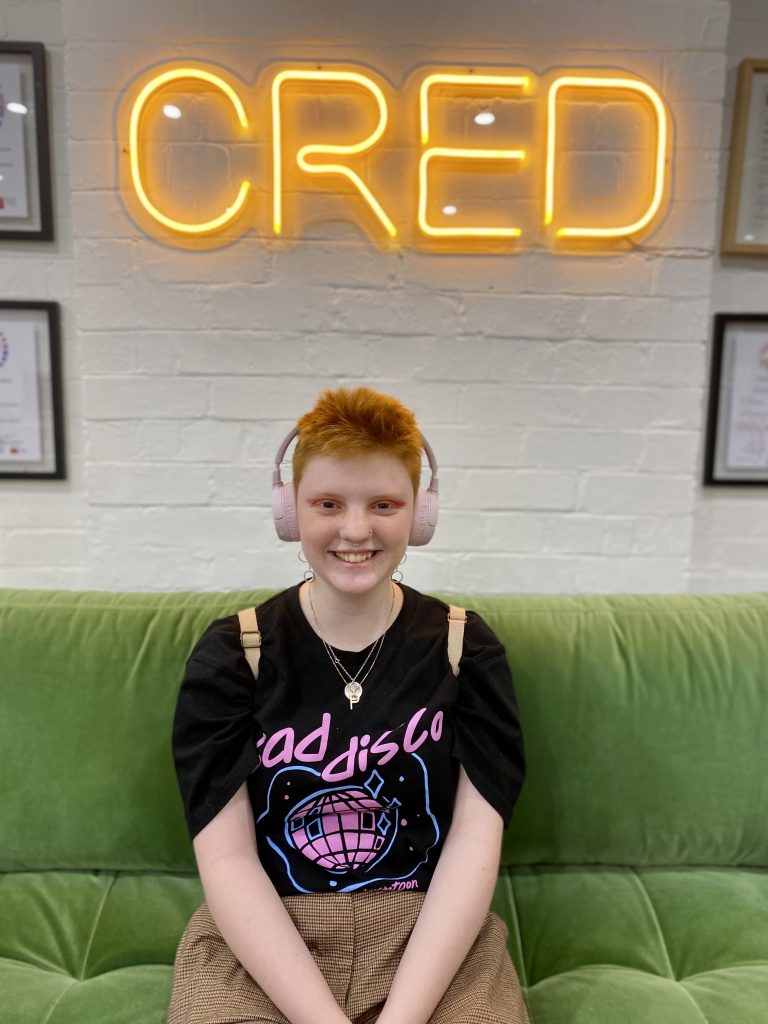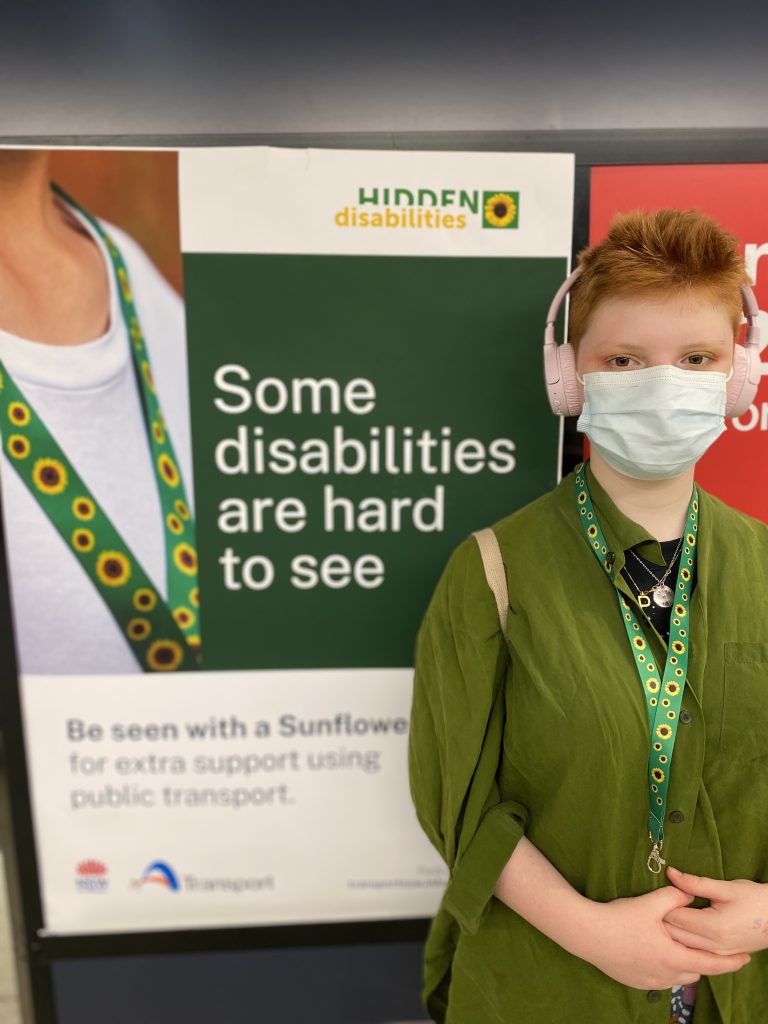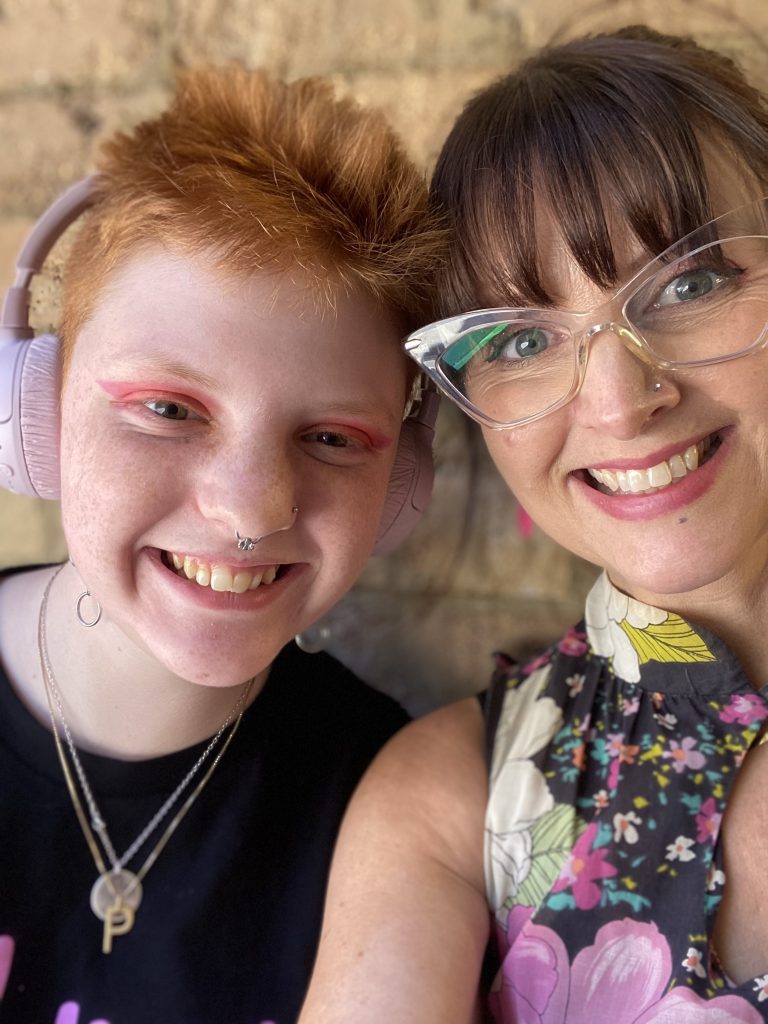Article
by Cred Consulting
December, 2022
International Day of People with Disability is held annually in December and aims to increase public awareness and promote inclusion of people with disability.
It’s a message 16-year-old Sydney Year 10 student, Polly, is passionate about promoting, as one of the 4.4 million people in Australia living with disability – and one of the 90% of those millions whose disability is hidden.
Joining Cred for work experience this week, Polly – softly spoken, thoughtful, and as articulate as she is colourfully dressed – opened up on her experience living with disabilities that are not immediately obvious to onlookers, as well as why she’s an advocate for greater representation, and her tips on creating inclusion in the workplace and beyond.

“There’s so many different types of disabilities. I think a big thing is asking a variety of people what they need,” says 16-year-old Polly
Living with a ‘hidden disability’
How do you feel about sharing your story?
With autism, I didn’t really have that uncomfortability with talking to someone. The main issue was just talking to someone I don’t know. But talking about myself, I’m like “whatever”.
Have you ever felt ‘different’?
When I was younger, in primary school, I thought I was broken. I genuinely used to think that everyone got a book of instructions on how to do things and I missed out on it.
I struggled in social situations, saying the wrong thing, and just never knew when it was my turn to talk, whereas it seemed like everyone else did it so freely. I was always a little bit left out.
I used to have such an issue with socks! I would wear them inside out and I had to have my shoes super tight. but I didn’t know why. To everyone else, it was obvious I had inside-out socks and they would be like, “What are you doing?” And I was like, “You don’t do that?!” It’s funny to me now!
Can you share your story about receiving your diagnoses?
Around two years ago, I got diagnosed with ADHD, and that was a big relief for me, to understand, I’m not stupid. We were able to start helping with that, but I still didn’t feel like it explained everything. Six months later, I got diagnosed with Tourette’s syndrome. I had already suspected it, as I was tic-ing.
A year ago, I had been seeing some autistic creators talk about autism in women, and I was like, ‘Wow, this is very similar to me,’ and, ‘Hmm, I wonder…’ So, I talked to my therapist about it and she was like, “yes, you are – with neurodivergency, it’s all a bit connected, so it wouldn’t surprise me”.
I also suffer from generalised anxiety, and have had frequent panic attacks. The anxiety is also super connected to the autism and the ADHD. So, I’ve got really bad social anxiety. Receiving my diagnoses was life-changing.
Do you tell people you meet about your disabilities?
Not as soon as I introduce myself to someone, but I will bring it up early on that I have Autism and Tourette’s, because it just gives an explanation of how I am. And it makes me feel better, and if I start tic-ing, like it won’t freak them out. If they know, I feel more comfortable to be like, “Oh, I’m…I just can’t talk right now,” or “I need to leave.”
What are some of the benefits to having your disabilities?
I think it makes me a more creative person. I definitely like to express myself a lot. I especially love my hairstyles. I change it constantly – it’s one of my favourite things. I think I’m much more comfortable to express myself, especially since a lot of the time I’m, a bit unaware of what people are thinking.
That’s another misunderstanding with autism – that you can’t feel empathy. That is absolutely not true. I’m hyper-empathetic, which means I can’t not think about how people are feeling. I think for autistic people it’s easier to feel empathetic to a situation you understand. I care about people and things a lot, and animals!
What are some of the challenges you have faced as a result of your disabilities that you would like people to be more aware of?
I really only had one friend – and she was friends with everyone! I felt so alienated. I just couldn’t figure out how people got close with each other, other than my friend. With social cues it’s such a big thing, to help make a connection, to know when someone is not feeling great, or if I’m making them uncomfortable, and I just can’t pick up on that. I find it very hard to know the status of my relationship with someone.
If I’m in a stressful situation I instantly go nonverbal. I’m like, “Nope, I can’t do this”.
If your disabilities were people, what would they look like?
I think it would depend on which one it was. For autism, they would be a bit similar to me: they would have very fancy, bright clothes and probably headphones, same as me! But, with the rest of them, they would be really bland. I feel like it would be very loud and quiet at the same time. And probably very tired.
Do you ever wish your disabilities were more visible?
Absolutely. I’d say with autism, I’m pretty good at masking until I’m tired or overwhelmed and it’s just so obvious. And with anxiety, I’m medicated for it, so that helps, along with years of therapy.
The Sunflower lanyard, which is for invisible disabilities, is becoming more popular in Australia. It’s popular in America and the UK. People often wear them for transport or airports, just so people are aware, and they can get the accessibility they need. I like the idea of that. Obviously, I don’t want to make myself a target for bullying or anything.
Have you experienced any bullying due to your disabilities?
It was before I was diagnosed. In primary school, I was intentionally left out and people made fun of me for being quiet. When I was younger, I used to wear heaps of hair clips and I would have a fringe tied up right on my head and big donut socks, and I remember heaps of people being like “I love your style!” and laughing, and I was like “Thank you!” I thought I was just getting lots of compliments.
Half the time I didn’t even know I was being made fun of, so it turned out fine for me!


